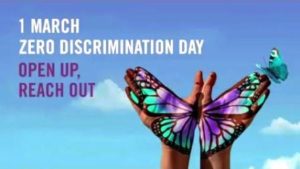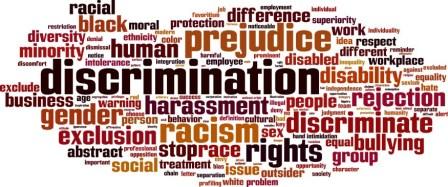Do we discriminate against our neighbours? Think about it on ZERO DISCRIMINATION DAY. (That’s today!)
March 1 is celebrated as Zero Discrimination Day and it is very important for people and especially people living in India.
Being a large country with large population, India is the land of many languages, it is only in India that people profess all the major religions of the world. The vast population is composed of people having diverse creeds, customs and colours and this diversity makes India unique.
Keeping diversity in mind Right to Equality is mentioned in our Indian Constitution however when we look at it in the practical world we see loops in its functioning. There is discrimination at every step be it gender, caste, creed, colour, religion, sexuality, ethnicity etc.
Still people discriminate between boy and girl, people do not hesitate to favour people who belong to same caste, LGBT are fighting for their rights as still they are not being counted, women are ignored , most powerful try to suppress the others etc.
As Zero Discrimination Day is about raising the voice for the right to live life with dignity without discrimination of gender, sexuality, nationality, ethnicity, skin, colour, age etc.
Thus it is high time that people come together to raise their voice against all these injustice and violation of human rights.
The UN first celebrated Zero Discrimination Day on March 1, 2014 after UN AIDS, a UN program on Human Immune Deficiency virus (HIV) and Acquired Immune Deficiency Syndrome (AIDS), launched its Zero Discrimination Campaign on World AIDS Day in December 2013.
The symbol for Zero Discrimination Day is the butterfly, widely used by people to share their stories and photos as a way to end discrimination and work towards positive transformation.
Organizations like the UN actively promote the day with various activities to celebrate everyone right to live a full life with dignity regardless of age, gender, sexuality, nationality, ethnicity, skin colour, height, weight, profession, education and beliefs.
Thus for the betterment of our society and also for the development of every individual we need to support and practice Zero Discrimination in our daily life.
(Prepared by Seema Kumari)


